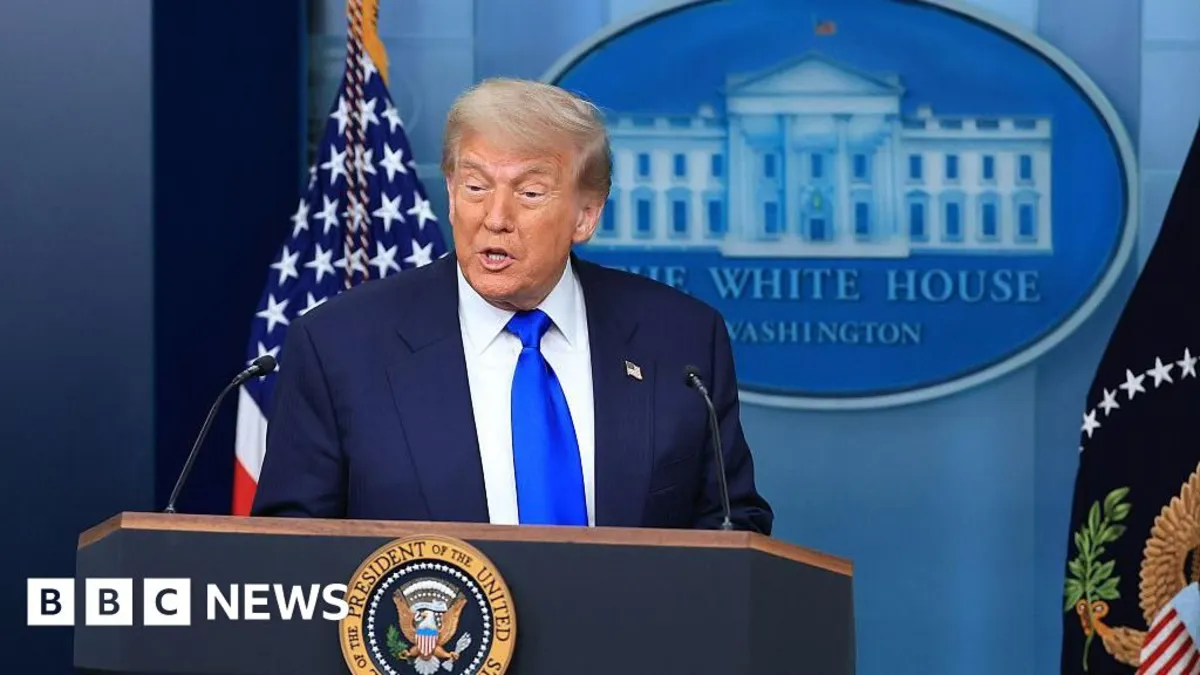
The Supreme Court has announced it will hear arguments regarding the legality of the sweeping global tariffs imposed by the Trump administration. On Tuesday, the court stated it would review the decisions made by lower courts which determined that President Trump lacked the legal authority to enact these tariffs. The tariffs were enacted under the auspices of an emergency economic powers act, specifically the International Emergency Economic Powers Act (IEEPA).
The justices will hear arguments in this significant case during the first week of November, marking an expedited timeline for such a high-profile issue. This case represents the largest test of Donald Trump's presidential authority and his key economic policy, which could potentially result in the United States having to refund billions in collected tariffs.
Thus far, the Supreme Court's conservative majority has generally been supportive of temporarily reinstating Trump's policies and has responded favorably to his requests for emergency orders. However, this case will serve as the court's first substantial assessment of the legal foundation of one of the Trump administration's most far-reaching policies.
President Trump invoked the International Emergency Economic Powers Act to impose tariffs ranging from 10% to 50% on numerous trading partners, including major economies like China, Mexico, and Canada. Despite a federal appeals court ruling last month that Trump exceeded his authority under the IEEPA, these tariffs remain in place as litigation continues.
The appeals court ruled that the power to impose taxes and tariffs is constitutionally reserved for Congress, a decision that Trump has publicly criticized. On his platform, Truth Social, he stated, “If allowed to stand, this Decision would literally destroy the United States of America.”
The initial challenge to Trump's tariffs was brought forth by a coalition of small businesses and a dozen states, arguing that his invocation of the IEEPA to impose these tariffs was unlawful. The 1977 law allows a president to activate various economic measures to address any unusual or extraordinary threat to national security, foreign policy, or the economy that originates substantially from outside the United States.
If the Supreme Court sides with the lower courts and rules that Trump's tariffs under the IEEPA are illegal, it will raise questions about whether the U.S. will need to reimburse billions in import taxes that have already been collected. Existing trade agreements with countries such as the UK and Japan, as well as ongoing negotiations, could also face significant upheaval.
Following the Supreme Court's announcement, Trump commented on Truth Social that his administration is still engaged in trade negotiations with India, expressing confidence in reaching a successful agreement. He indicated that despite the legal challenges, there would be no difficulties in concluding these discussions.
While the Trump administration primarily used the IEEPA to impose these tariffs, there are other mechanisms available for imposing tariffs, albeit with more limited scope. For instance, the president utilized a different law to enact tariffs on steel, aluminum, and automobiles, which remain unaffected by this particular case.